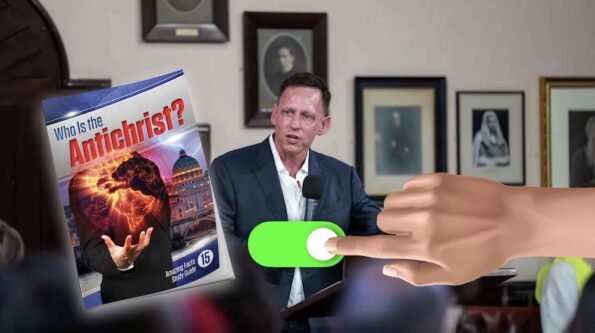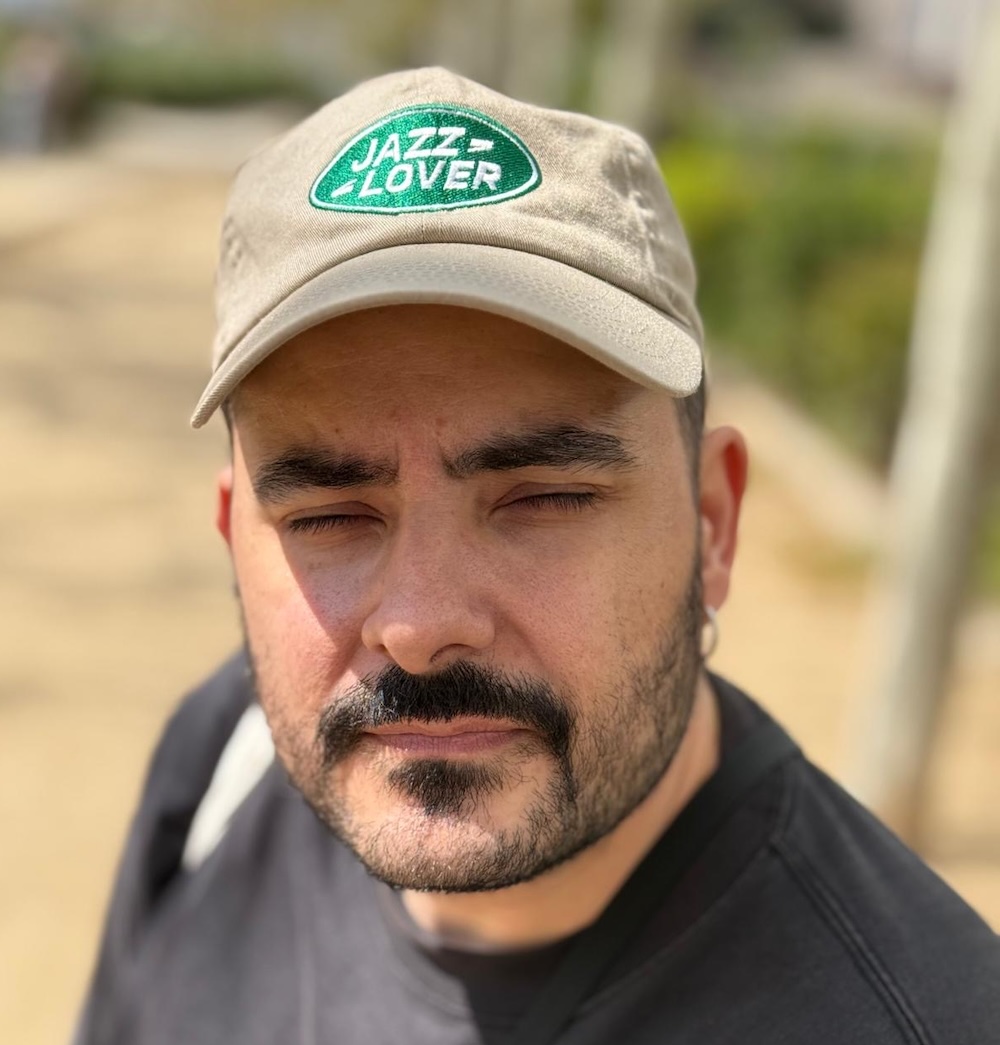Search
To search for an exact match, type the word or phrase you want in quotation marks.
A*DESK has been offering since 2002 contents about criticism and contemporary art. A*DESK has become consolidated thanks to all those who have believed in the project, all those who have followed us, debating, participating and collaborating. Many people have collaborated with A*DESK, and continue to do so. Their efforts, knowledge and belief in the project are what make it grow internationally. At A*DESK we have also generated work for over one hundred professionals in culture, from small collaborations with reviews and classes, to more prolonged and intense collaborations.
At A*DESK we believe in the need for free and universal access to culture and knowledge. We want to carry on being independent, remaining open to more ideas and opinions. If you believe in A*DESK, we need your backing to be able to continue. You can now participate in the project by supporting it. You can choose how much you want to contribute to the project.
You can decide how much you want to bring to the project.

A few weeks ago, Peter Thiel (founder of PayPal, early investor in Facebook, ideological boss of Palantir, and the man who stuttered when an interviewer asked him if the human race should survive) dedicated four public lectures in San Francisco to warning people of the imminent arrival of the Antichrist. Yes, you heard that right, the being in biblical tradition associated with the absolute deception and the figure who would destroy man’s direct relationship with God. He said this without any irony and to packed auditoriums. A libertarian billionaire obsessed with facial peels (after undergoing peelings, lasers, and microdermabrasion, Thiel’s face has acquired the texture of a crater and oozes a slimy protective mucus), speaking about apocalyptic theology as if it were a business seminar.
“The Antichrist’s slogan is ‘peace and security,’” Thiel repeated several times, according to anonymous reports about these conferences published in The Guardian. From time to time, he emphasized that his duty “as an entrepreneur” was to build the technology to avoid this fate. Reading the transcripts of Thiel’s rants helps to understand a broader, more surreal mutation. The ideas of innovation and disruption have disappeared as the calling of the American technological elites, and they now preach salvation. What kind of salvation exactly are they talking about?
Nietzsche used the Antichrist to criticize Christianity, which he believed was “the great inner corruption.” The philosopher offered him as a symbol of empowerment and/or emancipation far removed from Christian morality. For Anton LaVey, the American founder of the Church of Satan and author of The Satanic Bible published in 1969, the Antichrist was something similar but more performative. “Man freed from guilt, an icon of rational hedonism and conscious manipulation of the dominant morality.”
Peter Thiel’s Antichrist is, however, completely different, for behind it lies a doctrine of power that blends medieval theology, geopolitics, and big data capitalism. What scares this entrepreneur is not exactly the return of Satan or Lucifer. Rather, what gets his balls in a twist is something as harmless as “global consensus,” that is, the possibility of the planet reaching agreements on energy, AI, or the environment. In his mindset, any attempt at global coordination is suspected of heresy. The One World promoted by international organizations is for him the first step toward totalitarianism and complete servitude. It’s hard to believe but Thiel sees the sole, remote possibility we have of avoiding collapse as the Antichrist.
Faced with this risk of stabilization, he proposes an economic spirituality based on dispersion, a strange kind of market mysticism in which each nation, company, or individual acts on its own, and in which competition is the only true faith. The fragmentation of power thus becomes understood as a moral virtue and deregulation reigns as an almost religious mandate. Thiel has created a narrative interface to justify total deregulation.
The origin of this new trick can be found in Carl Schmitt, a German legal scholar who in the 1930s wrote about how the katechon (the figure that represents the end of time) was supposed to protect the world from a “diabolical unification.” Thiel reinterprets and adapts this metaphor to the language of capital, in which the katechon becomes capitalism itself, a system that, by maintaining conflict, prevents the dominance of a single global power. His logic is cynical and perverse, as it suggests that chaos ensures freedom. Within that idea, Palantir and Facebook are two sophisticated tools for delaying the end. Surveillance to avoid tyranny, control to avoid being controlled. LOL.
Hell, according to Thiel, would be walking around the Berlaymont Building in Brussels, headquarters of the European Commission, without sunscreen. His discourse combines the impulses of American evangelicalism, Schmitt’s ideas, and the libertarian paranoia of Silicon Valley. The apocalyptic nature of the matter lends moral legitimacy to his crusade while the economic interests are camouflaged behind a defense of the salvation of the human spirit against the scapegoat of the bureaucracy machine, just like Musk and Milei who have also sought to neutralize with a chainsaw. The new Antichrist, then, is the project of global governance to which neither Thiel, nor his contemporaries, nor the technology they finance, are invited.
Thiel reinterprets Saint Paul in his own way, treating him as just another political analyst, and selling his listeners on the idea that peace and security is the new slogan of the Antichrist. The phrase, taken from 1 Thessalonians 5:3, serves to project an old religious fear onto the political present, that is, the idea that global harmony is by definition suspect. The aforementioned lectures mix Biblical verses with investment arguments, prophecies, delusions, and strategic planning. Thiel turns the aforementioned katechon into something like a risk management principle or a damage control device. His role as an entrepreneur is no longer to advance history but to stop its collapse.
Palantir (a data analytics software company founded by Thiel in 2003 that specializes in creating systems to integrate and cross-reference massive amounts of information for governments, militaries, and corporations), therefore, appears as its redeemer, a surveillance infrastructure that promises to protect us from the digital Antichrist. Hell will be avoided by accumulating and extracting data from ordinary people. In fact, figures from the American Christian far right defend him as blessed for having invented his corporation since it helps the government track potential threats. The paradox is that the apparatus designed to combat Thiel’s Antichrist adopts the same structure of absolute power he claims he wants to combat. With each new contract signed with the Department of Defense or the CIA, the myth is reinforced: we must be vigilant because evil is near. The rhetoric of defense (in the face of the intangible) is transformed into an absolute ideology of control.
Among the symbolic victims of this idea is Greta Thunberg. Thiel mentions her in his lectures as a possible “incarnation of the contemporary Antichrist,” the symbol of a movement that promises to save the planet through global consensus. For him, environmentalism represents a project of unification/stabilization that will eventually impose common limits. The figure of the activist, then, fulfills the function that the devil served in medieval sermons, that is, a moral projection upon which to vent a fear of power. Turning climate responsibility into a spiritual threat allows him to convert environmental policy into heresy.
In his arguments, Thiel seems to have read René Girard, the thinker who interpreted human desire as a mechanism of imitation and sacrifice. From Girard he takes the idea that rivalry is inevitable and that the attempt to eliminate it produces new forms of violence. Within this framework, Thiel resembles the father protecting his son in high school after complaints of bullying. His child is capitalism, which becomes a liturgy that channels the most wretched human impulses without any need for redemption.
In his lectures, Thiel states that “Facebook was his bet for mimesis.” (Mimesis here is understood as the process by which people learn to desire what they see others desire. This mechanism creates rivalry since we all compete for the same objects, positions, or symbols being that our desires infect each other.) it is a system that fuels competition to avoid potential stagnation.
The political dimension appears when Thiel describes the United States as a point of tension between the Antichrist and the katechon. In his interpretation, the country is the epicenter of the world order and, at the same time, the only bastion capable of resisting it. This duality produces a narrative of exceptionalism that fits perfectly with the American mythology of it as the chosen nation, the Founding Fathers, the permanent frontier, and its moral mission. Technology equals providence. Silicon Valley can now begin to be considered a theological institution that manages global chaos under this new form of corporate faith. Faith, that is, not like that of old times but as blind trust in data systems and surveillance.
The Antichrist, then, is no longer a beast, nor a creature born from the womb of a virgin penetrated by Satan. It is not at all supernatural but rather a person who suddenly refuses to accept the terms and service and covers his laptop’s webcam with duct tape. This strange technological capitalism, sustained by a pseudo-theological and eschatological (a term understood here as a way of thinking about the future based on the fear of the end) roadmap, functions like a decentralized Church, as each user participates in the cult without even realizing it, performing their part of the ritual simply by logging in. As far as we can see, in Thiel’s fantasy, you don’t have to believe in the end of the world to be an (active) part of it.

Frankie Pizá (Palma de Mallorca, 1984) is a cultural critic, educator, and founder of FRANKA™️, an independent media that analyzes the intersection of arts, technology, and culture. His work centers on a simple and unusual idea: “protecting the context” in a time of increasing disinformation, creative precariousness, and algorithmic noise. He has worked on landmark projects such as Primavera Sound, Red Bull Music Academy, and Concepto Radio, and has collaborated with various media and cultural platforms. In recent years, he has established himself as one of the most unique voices in the Spanish language when it comes to interpreting phenomena. His essays balance cultural criticism and contemporary theory and seek to explain what is happening in real time, using critical and accessible language.
"A desk is a dangerous place from which to watch the world" (John Le Carré)